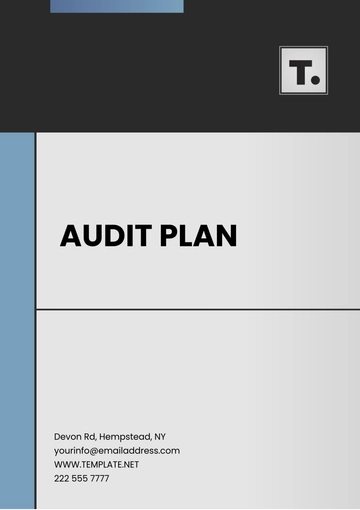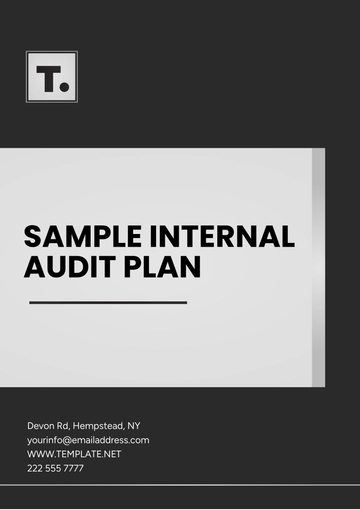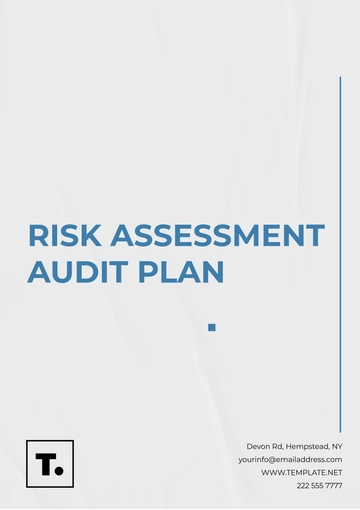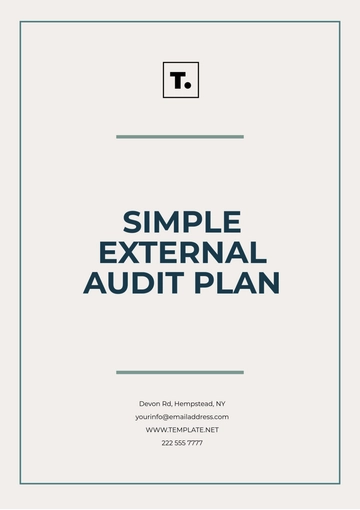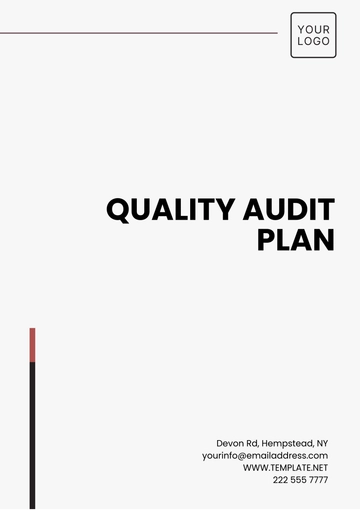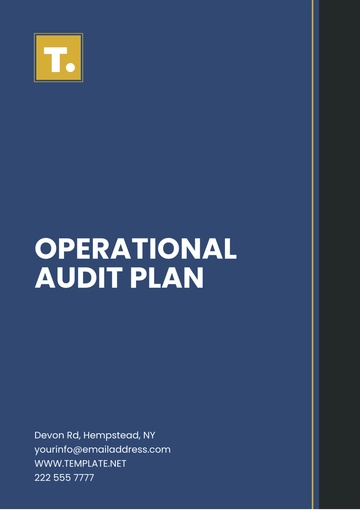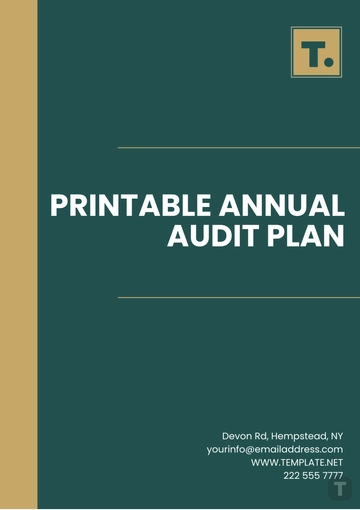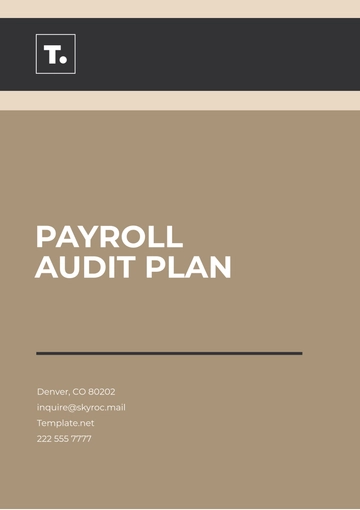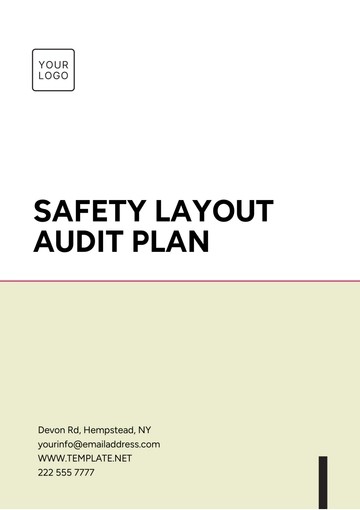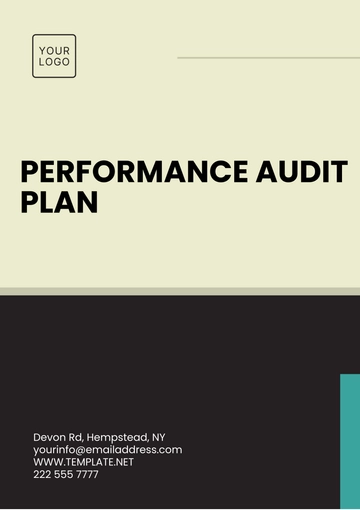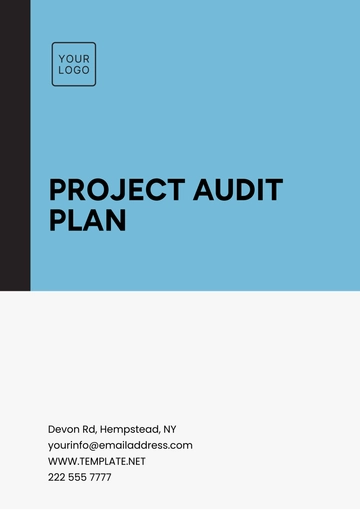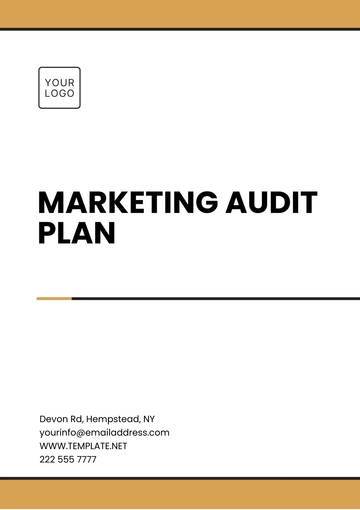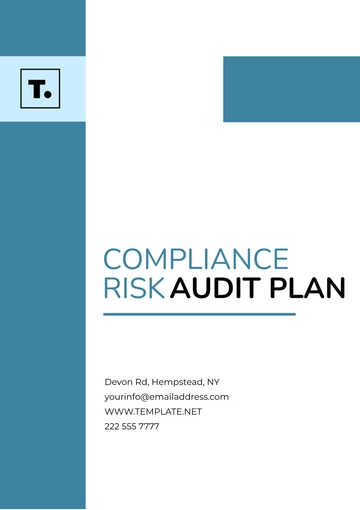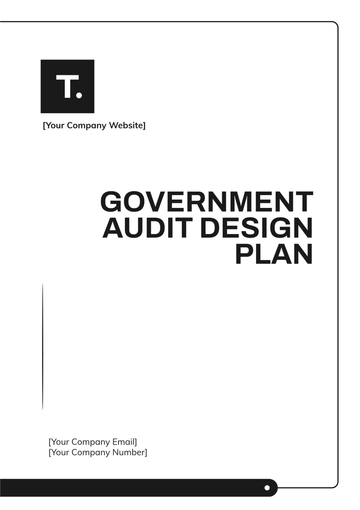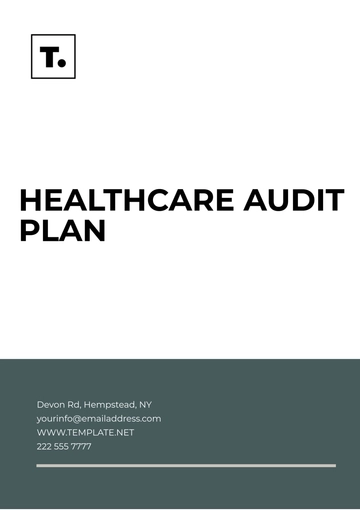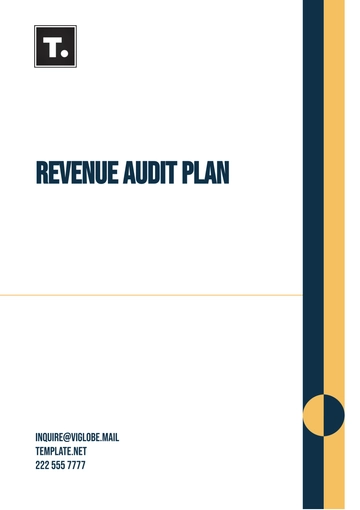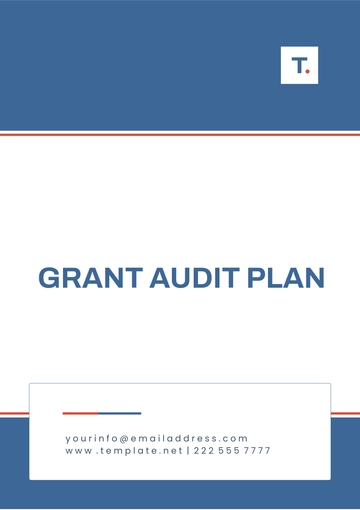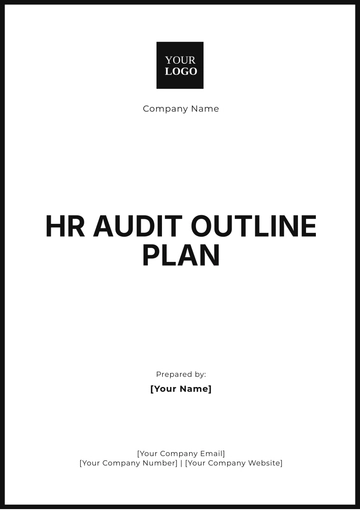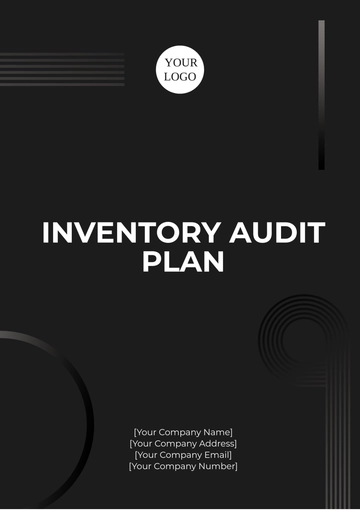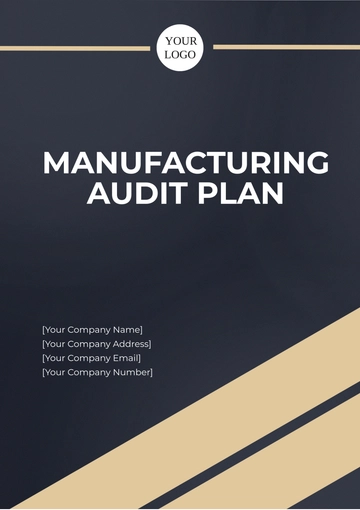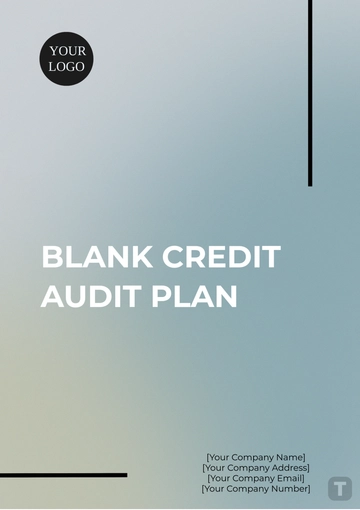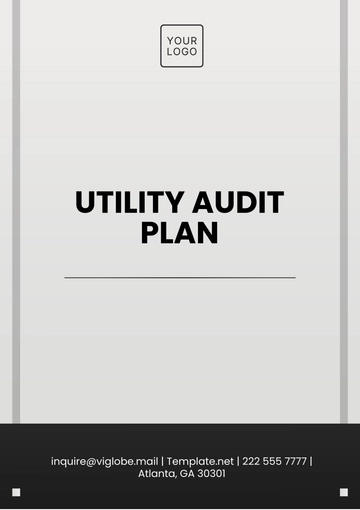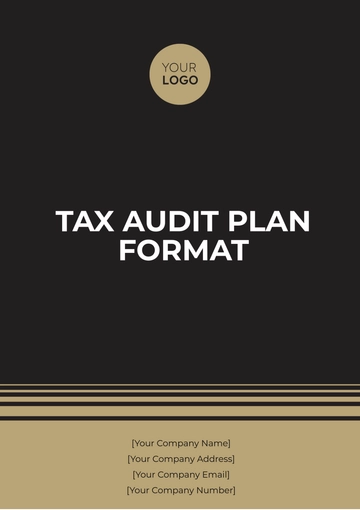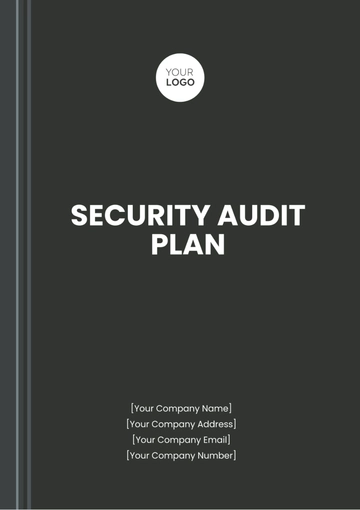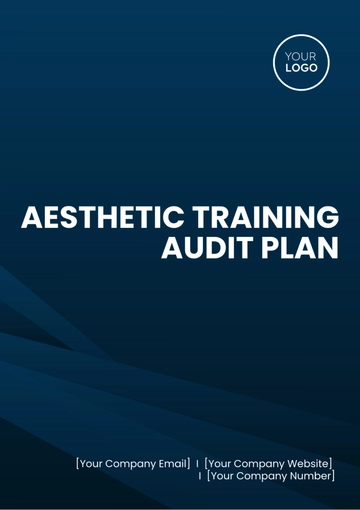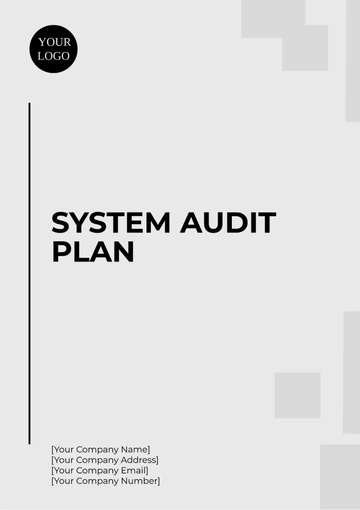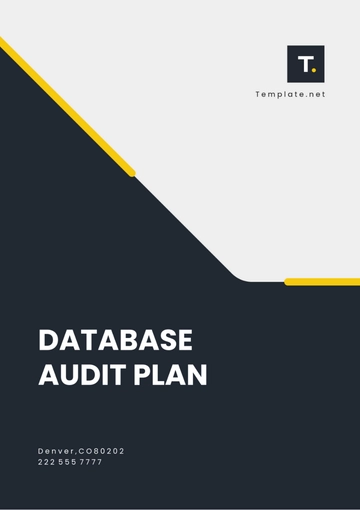Free Revenue Audit Plan
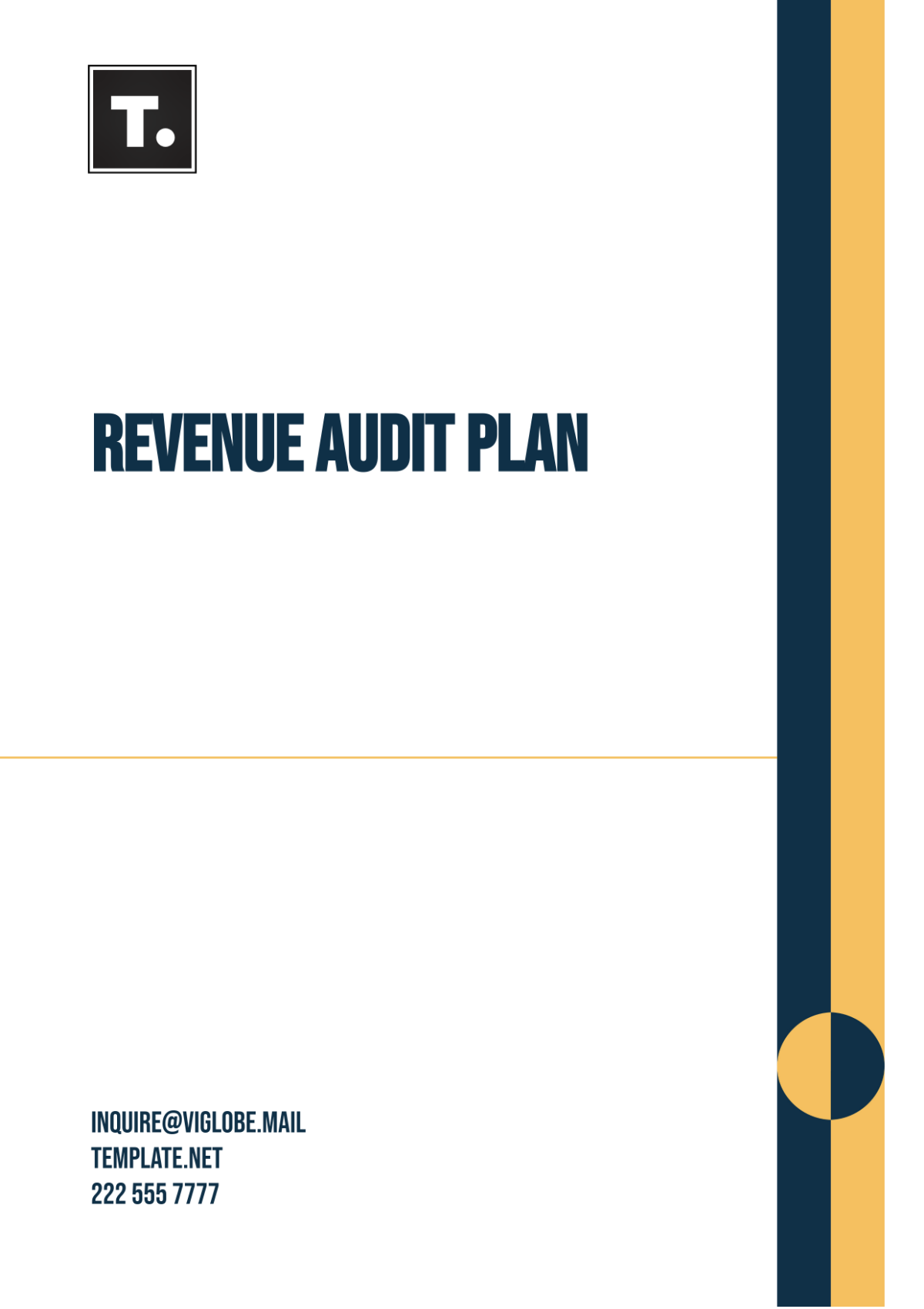
I. Introduction
Ensuring strong revenue assurance is vital for an organization's financial integrity and long-term success. This Revenue Audit Plan is a comprehensive and structured approach to auditing revenue processes. It serves as a practical guide for identifying key areas for examination and providing procedural insights to ensure accuracy and compliance.
II. Objectives of the Revenue Audit
The primary objectives of the revenue audit are to validate the accuracy, completeness, and compliance of revenue recognition and reporting processes. Specific goals include:
Verification of all revenue sources to ensure accurate reporting
Assessment of adherence to applicable accounting standards and regulatory requirements
Identification of risks or potential revenue misstatements
Provision of recommendations to enhance revenue processes and controls
III. Scope of the Audit
The audit will focus on the following key areas to ensure a comprehensive review of the organization’s revenue management:
Revenue recognition policies and procedures
Sales processes and related transaction cycles
Billing and collection systems to ensure timely and accurate invoicing
Contracts and client agreements to assess compliance and revenue terms
IV. Methodology
1. Audit Planning
Effective audit planning is critical to achieving a thorough and insightful audit. This stage includes:
Defining the audit objectives and scope based on organizational needs
Scheduling timelines and allocating resources to ensure efficient execution
Identifying and engaging key personnel and stakeholders relevant to the audit
2. Risk Assessment
A detailed risk assessment is necessary to pinpoint areas where revenue misstatements or control failures may occur:
Reviewing past audit reports for recurring issues
Analyzing industry benchmarks to compare revenue practices
Evaluating internal controls to detect potential gaps or weaknesses
3. Testing and Evaluation
The testing and evaluation phase will involve both analytical and substantive procedures to assess revenue accuracy:
Conducting variance analysis and other analytical reviews to spot discrepancies
Performing substantive testing on selected transactions to ensure data integrity
Evaluating contract terms and conditions to confirm compliance with revenue recognition standards
V. Reporting
The audit findings will be documented in a comprehensive report, which will include:
An executive summary highlighting key findings and insights
Detailed documentation of audit procedures, including evidence and audit tests
Compliance assessments with accounting standards and regulatory frameworks
Actionable recommendations for improving revenue management and processes
VI. Follow-Up
To ensure the successful implementation of audit recommendations, follow-up actions will be conducted, including:
Regular meetings with management to review the progress of recommendation implementation
Tracking and monitoring the effectiveness of changes introduced based on audit findings
Re-assessment of key risk areas to ensure continued compliance and improvement
- 100% Customizable, free editor
- Access 1 Million+ Templates, photo’s & graphics
- Download or share as a template
- Click and replace photos, graphics, text, backgrounds
- Resize, crop, AI write & more
- Access advanced editor
Easily ensure the accuracy of your revenue auditing process with Template.net's Revenue Audit Plan Template. This editable and customizable template helps streamline your audit procedures, saving time and improving efficiency. Fully editable in our Ai Editor Tool, it’s designed to suit your specific needs for effective financial reviews.
You may also like
- Finance Plan
- Construction Plan
- Sales Plan
- Development Plan
- Career Plan
- Budget Plan
- HR Plan
- Education Plan
- Transition Plan
- Work Plan
- Training Plan
- Communication Plan
- Operation Plan
- Health And Safety Plan
- Strategy Plan
- Professional Development Plan
- Advertising Plan
- Risk Management Plan
- Restaurant Plan
- School Plan
- Nursing Home Patient Care Plan
- Nursing Care Plan
- Plan Event
- Startup Plan
- Social Media Plan
- Staffing Plan
- Annual Plan
- Content Plan
- Payment Plan
- Implementation Plan
- Hotel Plan
- Workout Plan
- Accounting Plan
- Campaign Plan
- Essay Plan
- 30 60 90 Day Plan
- Research Plan
- Recruitment Plan
- 90 Day Plan
- Quarterly Plan
- Emergency Plan
- 5 Year Plan
- Gym Plan
- Personal Plan
- IT and Software Plan
- Treatment Plan
- Real Estate Plan
- Law Firm Plan
- Healthcare Plan
- Improvement Plan
- Media Plan
- 5 Year Business Plan
- Learning Plan
- Marketing Campaign Plan
- Travel Agency Plan
- Cleaning Services Plan
- Interior Design Plan
- Performance Plan
- PR Plan
- Birth Plan
- Life Plan
- SEO Plan
- Disaster Recovery Plan
- Continuity Plan
- Launch Plan
- Legal Plan
- Behavior Plan
- Performance Improvement Plan
- Salon Plan
- Security Plan
- Security Management Plan
- Employee Development Plan
- Quality Plan
- Service Improvement Plan
- Growth Plan
- Incident Response Plan
- Basketball Plan
- Emergency Action Plan
- Product Launch Plan
- Spa Plan
- Employee Training Plan
- Data Analysis Plan
- Employee Action Plan
- Territory Plan
- Audit Plan
- Classroom Plan
- Activity Plan
- Parenting Plan
- Care Plan
- Project Execution Plan
- Exercise Plan
- Internship Plan
- Software Development Plan
- Continuous Improvement Plan
- Leave Plan
- 90 Day Sales Plan
- Advertising Agency Plan
- Employee Transition Plan
- Smart Action Plan
- Workplace Safety Plan
- Behavior Change Plan
- Contingency Plan
- Continuity of Operations Plan
- Health Plan
- Quality Control Plan
- Self Plan
- Sports Development Plan
- Change Management Plan
- Ecommerce Plan
- Personal Financial Plan
- Process Improvement Plan
- 30-60-90 Day Sales Plan
- Crisis Management Plan
- Engagement Plan
- Execution Plan
- Pandemic Plan
- Quality Assurance Plan
- Service Continuity Plan
- Agile Project Plan
- Fundraising Plan
- Job Transition Plan
- Asset Maintenance Plan
- Maintenance Plan
- Software Test Plan
- Staff Training and Development Plan
- 3 Year Plan
- Brand Activation Plan
- Release Plan
- Resource Plan
- Risk Mitigation Plan
- Teacher Plan
- 30 60 90 Day Plan for New Manager
- Food Safety Plan
- Food Truck Plan
- Hiring Plan
- Quality Management Plan
- Wellness Plan
- Behavior Intervention Plan
- Bonus Plan
- Investment Plan
- Maternity Leave Plan
- Pandemic Response Plan
- Succession Planning
- Coaching Plan
- Configuration Management Plan
- Remote Work Plan
- Self Care Plan
- Teaching Plan
- 100-Day Plan
- HACCP Plan
- Student Plan
- Sustainability Plan
- 30 60 90 Day Plan for Interview
- Access Plan
- Site Specific Safety Plan
